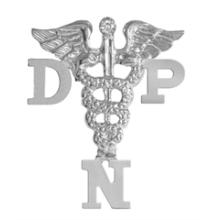The thought of a career in public health might bring to mind working with large government agencies that focus on large-scale public health issues.
Those public health jobs certainly exist. Everything from government-funded community centers to the Centers for Disease Control and Prevention are all part of a large and vital network of public health agencies.
However, degrees in public health can lead beyond jobs working directly for the government. In some cases, public health graduates can work for nonprofit agencies that focus on public health issues. They also can work for private consultants.
What types of careers can one follow? Public health work includes doctors and nurses, as well as specialists, much like any other area of healthcare. But the following careers focus more on the public health aspect of healthcare.
Health Educator
Health educators do exactly what the job title sounds like: They teach people about the proper diet and exercise habits that can lead to a healthier life. Their focus is on promoting wellness.
Certain health issues present a pattern of affecting specific communities within the population. Health educators assess the needs of communities, then develop plans and programs to benefit them. They also develop expertise on the best way to put these plans into action.
The role of a health educator can stretch into politics as well. Health educators often advocate for improving health services in underserved communities.
Health educators typically earn a bachelor’s degree in health education. Demand for health educators is expected to increase 14 percent between 2016 and 2026, according to the U.S. Bureau of Labor Statistics (BLS). The median salary for health educators was $53,070 in May 2016, according to the BLS.
Community Health Workers
Community health workers often work in conjunction with health educators. While health educators are typically in a supervisory role, community health workers are often on the frontlines of public health.
They deal directly with community members, talking with them about health-related issues and devising a treatment plan to help them. They often conduct outreach programs that teach about the importance of health screenings, exercise and healthy eating habits.
Community health workers also collect health-related data from community members that is used by health educators in developing their plans.
Most community health workers have a high school diploma and some type of certification. They may also earn an associate’s degree in a healthcare field. The number of community health workers is expected to grow 18 percent by 2026, according to the BLS. Median salary for community health workers in May 2016 was $37,330.
Healthcare Administrator
As with all healthcare operations, healthcare administrators are needed to manage spending and keep the operation within budget. They also manage personnel and guide the mission of a public health facility.
Most administrators have at least a bachelor’s degree in healthcare administration or something related. Many public health operations now want their administrators to have a master’s degree, as well.
Healthcare administrators are in high demand across the industry, with 20 percent job growth expected between 2016 and 2026, according to the BLS. Median pay, which can vary depending on what type of facility is managed, reached $96,540 in May 2016.
Other Public Health Professionals
Many other types of job are related to the public health sector, some of which people may not typically think of as related to public health. They include:

Environmental scientists. They work to protect communities from the affects of pollution by designing land reclamation projects. They also can help write recommended regulations for lawmakers to consider that place restrictions on land, air and water pollution. A bachelor’s degree in environmental science, biology or chemistry is typically required, with a master’s degree necessary for the higher positions in the field.
Safety engineers. Safety engineers use their skills and knowledge in engineering and apply them to duties such as improving the safety of consumer products and public transportation. This occupation also requires at least a bachelor’s degree.
Epidemiologist. These scientists work on tracking down the causes of viruses, diseases and injuries that harm the public health. They typically work in research labs where their findings can drive public health policy. A master’s degree is required to enter this field.
All three of these positions often work with a public health informatics specialist. Healthcare workers in informatics jobs help gather, sort and analyze relevant data.
Those are some of the occupations related to the growing field of public health. For those who want to work in healthcare and have a desire to help large segments of society led better lives, it’s an area of healthcare worth considering.









